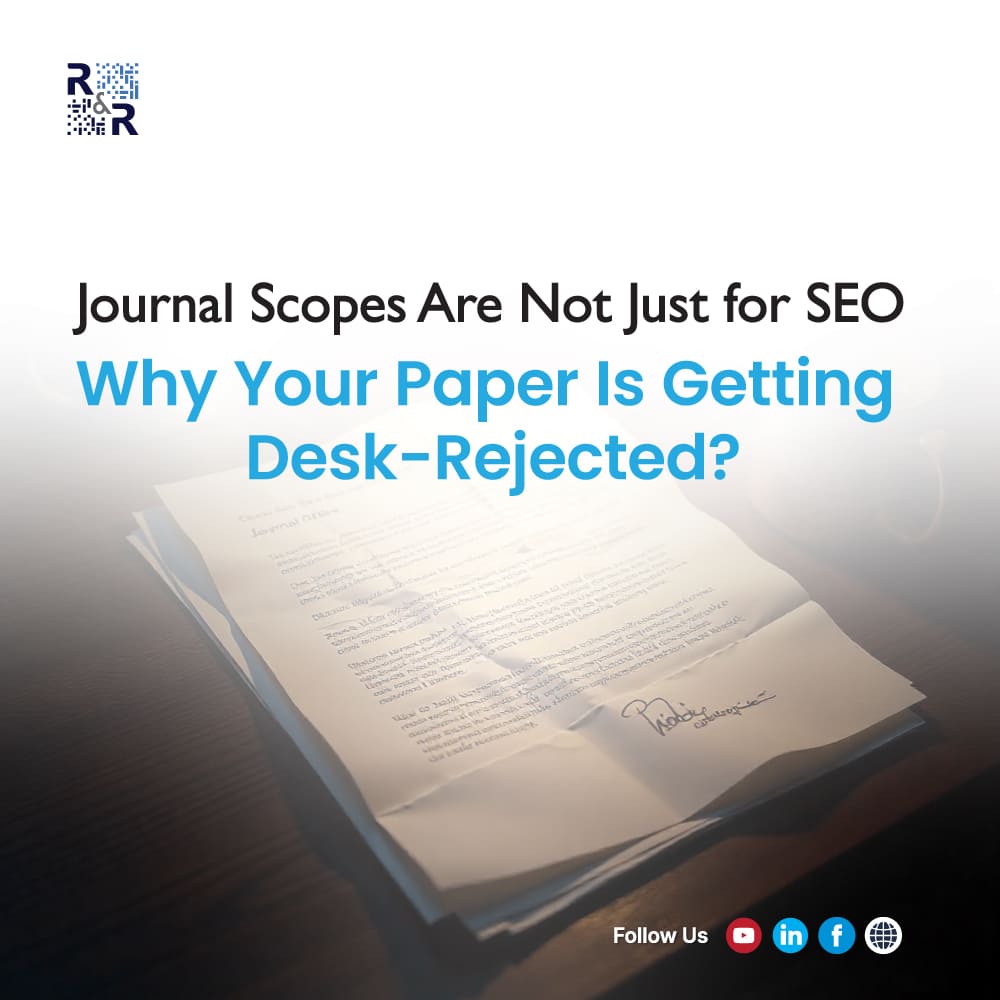Many researchers mistakenly believe that the presence of journal-relevant keywords in their title and abstract will sail their manuscript past initial screening. In truth, editors are looking for far more than buzzwords—they assess whether your submission fits the journal’s broader intellectual mission.
Scope ≠ Keywords
Journals don’t simply scan for topical keywords. Editors evaluate whether your work contributes meaningfully to ongoing debates in the field. For instance, the Journal of International Business Studies rejects single-country studies lacking a clear cross-border or international business perspective—despite keyword matching—because they don’t align with the journal’s aims and scope.
Misaligned Methods
Even when the topic appears to fit, an inappropriate methodology can signal misalignment. A qualitative study may be desk-rejected from a journal that prioritizes rigorous econometric or experimental approaches, as editors use methodological heuristics to save peer reviewer time.
Audience Relevance
Editors constantly ask: Will our readership care? A study on education policy is unlikely to pass in a finance-focused journal—regardless of “finance” being mentioned—unless it clearly addresses finance-specific theoretical or practical concerns.
Theoretical Anchoring & Novelty
High-impact journals seek work that challenges or advances theoretical frameworks—not merely reports results. Manuscripts lacking originality or novelty are often desk-rejected. In fact, a content analysis identified lack of novelty and being out of scope as the top desk-rejection reasons. Editors want papers that move the field forward with new insights or conceptual innovation.
Effective Communication & Presentation
Even strong research may be desk-rejected if it’s poorly presented. Clear, compelling writing, tight narrative flow, and polished visuals matter. Editors frequently glance at abstracts, cover letters, figures, and introductions. Papers riddled with grammar errors or confusing layout may simply not be worth sending to reviewers.
The Real Myth vs. Reality
The widespread myth is: “Just sprinkle the right keywords and you’ll pass screening.” The reality is far more demanding—you must align your work with the journal’s intellectual mission, methodological culture, theoretical approach, readership interests, and stylistic expectations.
A More Strategic Approach
Before submission:
- Map your argument to the journal’s editorial mission statement, not just the keywords.
- Review the aims and scope carefully, compare to recent articles, and cite a few to demonstrate fit.
- Tailor your methodology to journal expectations.
- Highlight novelty explicitly in abstract and introduction.
- Ensure high presentation quality—from language and flow to figures and formatting.
By moving beyond keyword-matching and designing your paper around the journal’s genuine scope, you increase your chances of advancing past the desk-review stage.
At Research & Report Consulting, we guide authors to move beyond keyword-matching and design submissions that speak to a journal’s scope, readership, and theoretical positioning.
Question for you:
When was the last time you mapped your paper’s argument to a journal’s editorial mission statement—not just its keywords?

